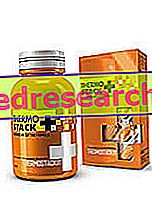KONAKION ® is a drug based on Phytomenadione
THERAPEUTIC GROUP: Vitamin K and other antihemorrhagics
IndicationsAction mechanismStudies and clinical effectiveness Usage and dosage instructionsWarnings Pregnancy and lactationInteractionsContraindicationsUndesirable effects
Indications KONAKION ® - Fitomenadione
KONAKION ® is used in the treatment of haemorrhagic diseases, both neonatal and induced by a deficiency of dependent vitamin K coagulation factors.
Mechanism of action KONAKION ® - Phytomenadione
The phytomenadione, active ingredient of KONAKION ®, also called phylloquinone, is a product of plant origin counted in the vitamin K family, more precisely as vitamin K1.
This vitamin plays a crucial role in the activation of a series of coagulation factors (II, VII, IX and X), defined precisely vitamin K-dependent factors, acting as a cofactor of a carboxylase responsible for the carboxylation in the range of a residue of glutamate exposed by the above factors.
This chemical reaction, which in addition to involving vitamin K also requires the intervention of epoxide reductase, is realized in the biological activation of factors involved in the activation of coagulation both through the extrinsic and intrinsic pathways.
Alterations of this enzymatic cascade are usually observed in patients undergoing long-term oral anticoagulant therapy and more rarely in malnourished infants or in rare cases of congenital deficiency.
Fortunately, even oral therapy, thanks to the ability of vitamin K to be effectively absorbed by the ileal mucosa, allows the deficits to be restored quite promptly, thus improving the bleeding diathesis.
Studies carried out and clinical efficacy
1. THE EFFECTS OF VITAMIN K1 ON TUMOR MARKERS
Dig Dis Sci. 2011 Jun; 56 (6): 1876-83. Epub 2010 Dec 28.
Study demonstrating how the administration of vitamin K1 can determine a significant reduction in blood concentrations of some hepatocellular carcinoma markers. These data could open new experimental strategies.
2.SINERGY BETWEEN VITAMIN KED
Altern Med Rev. 2010 Sep; 15 (3): 199-222.
A very interesting work that focuses on the pleiotropic and synergistic effects of vitamin D and K administration. Both vitamins have proved useful in protecting skeletal and vascular structures, thus guaranteeing a preventive effect against chronic and degenerative diseases.
3. VITAMIN KE BONE HEALTH
Am J Clin Nutr. 2008 Aug; 88 (2): 356-63.
Work demonstrating that low blood concentrations of vitamin K may be associated with an increased presence of inflammatory cytokines involved in the process of bone demineralization. Despite this observation, supplementation with vitamin K was not effective in improving bone density parameters.
Method of use and dosage
KONAKION ®
10 mg phytomenadione chewable coated tablets;
Drops for oral solution of 20 mg of phytomenadione per ml of solution;
Oral and injectable solution of 10 mg of phytomenadione per ml of solution;
Oral and injectable solution for early infancy with 2 mg of phytomenadione for 0.2 ml of solution.
While the oral or injectable 2 mg solution is indicated exclusively in the prophylaxis and treatment of neonatal hemorrhagic syndrome, associated with endogenous coagulation factor deficits, the other products are instead indicated in the treatment of hypoprothrombinemia hemorrhages.
The dosages to be used in the treatment of bleeding disorders should be defined by the doctor, based on the results of the coagulation tests and the related symptoms.
All treatment should be supervised by a specialist doctor.
Warnings KONAKION ® - Fitomenadione
The administration of KONAKION ® should be preceded by a careful medical examination useful to ascertain the absence of contextual pathologies, mainly atherosclerotic and thrombotic, potentially incompatible with the use of anti-haemorrhagics.
In patients with liver disease of any degree, the result observed in terms of bleeding control could significantly differ from that expected, therefore requiring a possible adjustment of the dosage used.
KONAKION ® in chewable tablets contains glucose and sucrose, therefore its intake is contraindicated in patients suffering from diabetes, glucose-galactose malabsorption and fructose intolerance.
Furthermore, the presence of para-hydroxy-benzonates could increase the risk of allergic reactions.
PREGNANCY AND BREASTFEEDING
The intake of KONAKION ® during pregnancy and in the subsequent period of breastfeeding should be carried out exclusively in case of real need and under strict medical supervision.
Interactions
Given the biological role of the phytomenadione, it is easy to imagine how taking KONAKION ® is able to completely antagonize the anticoagulant effects of dicumarinics.
An adjustment of the vitamin K dosage should be expected following the concomitant intake of antibiotics and salicylates.
Contraindications KONAKION ® - Phytomenadione
KONAKION ® is contraindicated in case of hypersensitivity to the active ingredients or to the relative excipients.
Undesirable effects - Side effects
The side effects described following the administration of KONAKION ® were observed mainly following intravenous use of the drug.
Bronchospasm, cyanosis, pain at the injection site, pruritus, tachycardia, were the most clinically evident and recurrent adverse reactions among adults.
In children, the appearance of jaundice, constipation, abdominal pain, rash, and general malaise was observed.
In all cases, fortunately, the symptomatology returned with the simple suspension of medical therapy.
Note
KONAKION ® is a medicine sold only on prescription.



